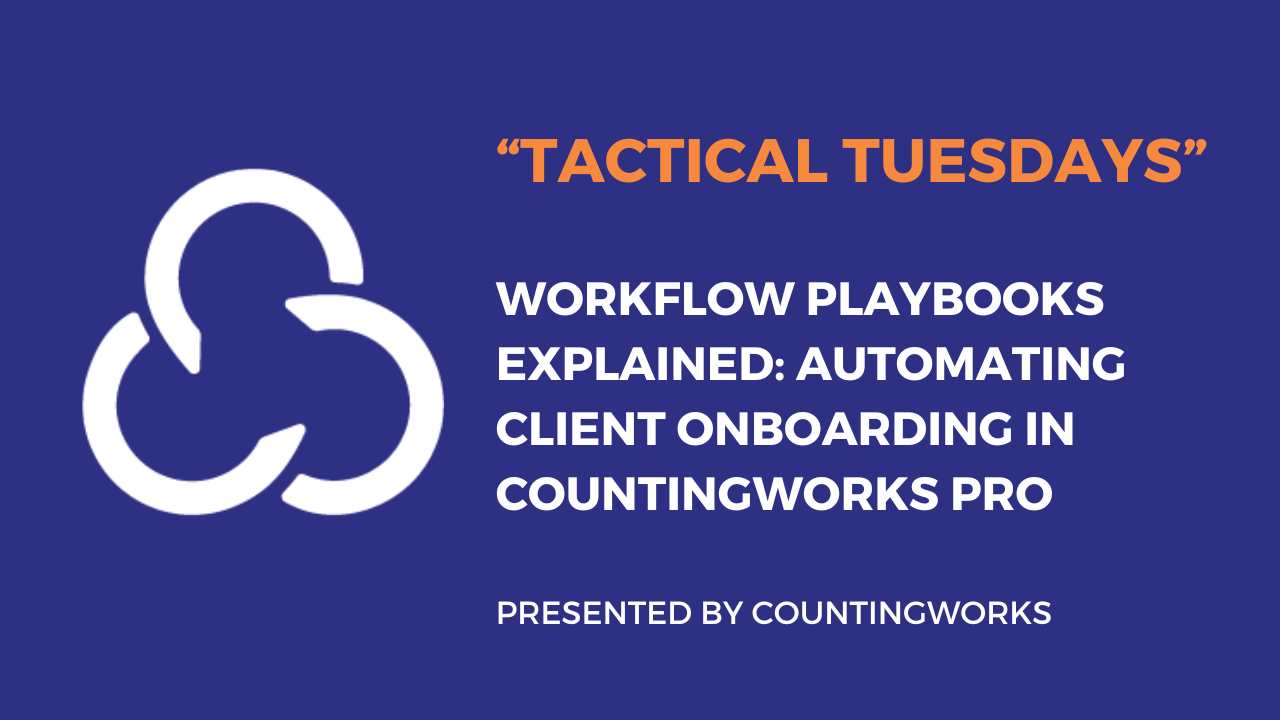
Welcome to this special blog post, where we break down key insights from this recent episode of the Growth Minded Accountant Podcast. In this episode, I, Lee Reams II, founder and CEO of CountingWorks, and Rebekah Barton, the brand’s Chief Visibility Officer, explore strategies for optimizing SEO. We dive into revelations from the recent Google algorithm leak and discuss how you can revolutionize your SEO approach for your practice. Discover actionable strategies for improving online visibility and credibility in the competitive tax and accounting industry.
Why SEO Matters for Tax and Accounting Professionals
Before we go any further, let’s take a moment to assess why SEO (search engine optimization) matters. These days, when it feels like everyone and their brother has a website, SEO is far more than a buzzword; it’s a critical set of strategies for tax and accounting professionals aiming to stand out in a crowded marketplace. With more firms and professionals vying for top search rankings, mastering SEO can be the key to attracting more clients, improving online authority, and, ultimately, commanding higher fees. Effective SEO strategies help your practice get noticed by potential clients who are searching for tax and accounting services online.
Key Insights from the Google Algorithm Leak
The recent Google algorithm leak – which featured a mind-blowing 14,000 ranking factors – shed light on several important issues that Google prioritizes in regard to search rankings. Understanding these can help you refine your SEO strategy and make sure you are taking the right steps to get your tax firm noticed:
SiteAuthority: This feature has to do with the overall authority of a website, which is influenced by factors such as quality content, backlinks, and domain reputation. Higher SiteAuthority can lead to better search rankings. This is particularly important for any company in the financial space, as all of these brands fall into the “your money, your life (YMYL)” category.
YMYL sites must have high authority in order to rank well since the information they provide can impact people’s well-being.
NAVBOOST: Google’s internal feature known as NAVBOOST tracks and uses click data as a ranking signal. In short, this means that more clicks on your website can positively impact your search ranking.
Freshness: Google places high importance on the freshness of content. Regularly updating your content can help maintain its relevance and improve its ranking in search results. In addition to posting brand new content on your blog regularly, it’s important to update evergreen content that is ranking well. If, for example, you have a 2024 small business tax guide that is positioned on page 1, make sure you update it for 2025.
The Importance of Building a Strong Brand
One of the most crucial aspects of SEO is building a notable and well-recognized brand – this plays directly into your SiteAuthority score. Google prioritizes established brands that are recognized outside of its search engine. This means that your practice’s brand reputation and recognition around the web play a significant role in improving organic search rankings.
Strategies for Brand Building:
- Consistent Branding: Ensure your brand is consistently represented across all digital platforms, including your website, social media profiles, and online directories. This includes updating NAP (name, address, phone number) information if it changes. Incorrect NAP details can have a negative impact on your overall web authority.
- Thought Leadership: Establish yourself as a thought leader by sharing insights, hosting webinars, and participating in industry forums. The more you establish yourself as a leader within your tax niche, the more likely you are to gain high-quality backlinks from writing guest posts, doing interviews, and more.
- Client Success Stories: Showcase client testimonials and case studies to highlight your practice’s successes and build trust with prospects before you ever have a conversation with them. In many ways, testimonials are a tax firm’s secret weapon.
Content Updates and SEO
As we shared earlier in this guide, Google places a high emphasis on the freshness of content. Updated and timely information is favored in search rankings, especially in fields like tax and accounting where regulations and laws can change quickly. As a result, the importance of regularly updating your website content to ensure it remains relevant and engaging cannot be overstated.
Tips for Maintaining Tax Content Freshness:
- Regular Blog Posts: Get on a consistent blog posting schedule. Write about issues that are relevant to your target audience. You could focus on current tax news, accounting tips, or even local topics to keep your content fresh. The content clusters that make sense for you will depend largely on who you are trying to reach – a tax professional who wants to work with pre-retirees, for example, will need to post different articles than someone trying to reach Gen Z content creators.
- Content Audits: Perform periodic audits of your existing content to update outdated information and improve its relevance. This is also a great way to see what your content library is missing. If, for instance, you focus on working with upscale restaurant owners but your content is largely focused on general IRS news, you should add more niche topics that address restaurant-industry issues.
- Industry Trends: Stay informed about the latest trends and changes in tax laws and accounting practices to provide up-to-date information to your audience. CountingWorks PRO makes this easy with our automated blog posts that cover newsworthy topics, like tax filing deadlines.

The Role of Originality in Tax and Accounting SEO
Google favors content that demonstrates genuine expertise and authority. Original images, personal experiences, and clear qualifications help build trust and credibility with your audience and with Google’s search algorithm.
How to Avoid Copycat Content:
- Compelling Headlines: Craft attention-grabbing headlines that encourage readers to click on your content. Even if you are covering a topic that many other tax and accounting experts have already written about, like a major IRS tax code change, try to find a unique angle that will appeal to your target audience.
- Engaging Content: To encourage engagement both on your blog and your social media profiles, focus on posting content that is both informative and interactive, such as quizzes, infographics, and videos. Video, specifically, can help drive content to your website – include a link to your homepage in the captions on any Reels, TikTok videos, or YouTube videos you post.
- Clear Calls to Action: Use clear and compelling calls to action (CTAs) to guide visitors toward taking desired actions, such as contacting you or signing up for a newsletter. This can improve website traffic, showing Google that your overall web presence is improving.
How to Build Trust with Your Content
As we’ll expound on in the next section, trustworthiness is a critical component of online visibility. To improve your SEO strategy and build trust with your audience, these are some of the elements you should prioritize.
How to Create Trustworthy Tax and Accounting Content:
- Expert Contributions: Guest posting on other blogs and websites is a great way to build authority and trust in the tax and accounting space. Reach out to experts you follow to see if they have opportunities for you to write about topics about which you’re passionate. Alternately, you can establish yourself as a trusted tax professional on websites like Newsbreak and Medium.
- High-Quality Visuals: High-quality images are an important Google ranking factor nowadays. For example, alt text on images – embedded captions that describe what the photo or infographic depicts – plays a major role in accessibility for the visually impaired. In addition to technical SEO aspects, quality imagery can improve user comprehension and engagement from a user experience (UX) standpoint.
- Get in Touch with Journalists: Engage with journalists and industry influencers to build a network of backlinks and get your name out there. This can build credibility and expand your reach through trusted media channels. Local influencers and journalists, in particular, are always looking for collaborators. Don’t be afraid to “slide into” someone’s DMs – the worst they can say is “No,” but you’ll be surprised by how many people are interested in working with financial experts like you.
Understanding E-E-A-T for Accountants
E-E-A-T stands for Expertise, Experience, Authority, and Trustworthiness. These principles are among the basic tenets of SEO strategy. Understanding this acronym is essential for building online credibility and authority:
Expertise:
Showcase Knowledge: Highlight your expertise by creating in-depth content on complex tax and accounting topics. Then, post it on your own blog and other trustworthy, authoritative websites whenever possible.
Certifications and Qualifications: Display your professional certifications and qualifications prominently on your website.
Experience:
Five-Star Reviews: Load various profiles, like your Google Business Profile and your business Facebook page, with five-star reviews from satisfied clients to demonstrate your practice’s experience and success. CountingWorks PRO makes this simple with pre-written review request email campaigns.
Showcase Service Offerings: Your website should showcase individual services for each of the tax and accounting services you offer. This shows potential clients that you have experience they can rely on.
Authority:
Thought Leadership: Publish articles, whitepapers, and research that position you as an authority in the tax and accounting field.
Industry Recognition: Highlight any awards, recognitions, or affiliations with professional organizations like AICPA and NAEA.
Trustworthiness:
Transparent Information: Your website should feature transparent information about your services, including pricing.
Secure Website: Ensure your website is secure and user-friendly, with SSL certificates and easy navigation. At CountingWorks PRO, we take pride in building highly secure tax and accounting websites.
Tips for Building Online Credibility and Authority
To establish credibility and authority online, there are some actionable tips you can easily implement into your day-to-day routine. For example, set aside 15 minutes each morning to respond to social media comments and engage with other accounts in your industry.
How to Build Web Authority in the Tax and Accounting Field:
- Create Authoritative Content: Publish detailed articles, guides, and how-to content on relevant tax and accounting topics. Ensure your content provides valuable insights and actionable advice for people within your target audience.
- Optimize for Local SEO: Ensure your practice is listed in local directories and optimize your Google My Business profile. This helps improve local search visibility and attracts clients in your area. Local SEO is critical for small businesses like your tax and accounting practice, especially if you have multiple locations.
- Engage on Social Media: Share valuable insights, firm updates, and industry news on social media platforms like LinkedIn, Facebook, and Instagram. Engage with your audience to build relationships and increase your online presence.
- Utilize Internal Linking: Improve site navigation and user experience by strategically linking related content within your website – for example, hyperlink relevant older blog posts within new articles. This helps keep visitors engaged and encourages them to explore more of your content.
Optimizing for AI and Generative Search
AI and generative search tools are becoming increasingly important in SEO. Since artificial intelligence isn’t going away, it’s time for the tax and accounting industry to embrace it. To optimize your content for these technologies, there are a few key tactics you can use.
How to Optimize Your AI Prompts:
Natural Language Processing: Most popular AI models have been trained on conversational English. This means they can process the natural flow of conversation, a feature logically referred to as “Natural Language Processing.” Writing prompts with conversational tones – just like you would use if speaking to a friend or colleague – will align with AI and generative search algorithms that focus on user intent and context.
Content Personalization: Create personalized content that addresses the specific needs and interests of your audience. AI tools can help analyze user behavior and tailor content accordingly. The more specific your prompts are, the more likely you are to get the responses you’re looking for. Furthermore, machine learning models will learn your preferences over time; the longer you use a specific AI engine, the more it will get to “know” what you like.

Enhancing the User Experience
As of Google’s May 2021 UX update, a website’s user experience plays a role in its organic search rankings. While many components comprise the overall user experience on any given site, certain factors matter more than others. Let’s take a look at some key issues.
How to Optimize Your Website’s UX:
- Responsive Design: Responsive websites automatically resize to whatever screen they are displayed on – this is vital in the smartphone and tablet era. Make sure your site is mobile-friendly and responsive across all devices. A seamless user experience typically improves engagement and reduces bounce rates.
- Fast Load Times: Optimize your website’s load times to provide a smooth and fast browsing experience. Slow-loading pages can negatively impact user experience, leading to lower search rankings. At CountingWorks PRO, our tax and accounting websites are known for their lightning-fast loading times.
- Interactive Elements: Incorporate interactive elements such as calculators, tools, and quizzes to engage visitors and encourage them to interact with your content. For example, tools that allow visitors to track their state and federal tax refunds will keep them on your website longer.
Future-Proofing SEO Strategies for Accountants
To keep your tax and accounting practice competitive and visible in the face of ever-evolving search algorithms, you should focus on future-proofing strategies. Stay informed by regularly following industry blogs, attending webinars, and engaging in professional forums to keep up with the latest SEO trends and algorithm updates. This will help you anticipate and adapt to changes in search engine requirements.
Additionally, be prepared to adjust your SEO strategies as new technologies and algorithm changes emerge – the rise of AI has dramatically changed search engine ranking strategies, for example. Flexibility is crucial for maintaining and enhancing your search rankings. Investing in advanced SEO tools and analytics platforms will also support your efforts by allowing you to monitor performance, track keyword effectiveness, and fine-tune your strategies for optimal results.
CountingWorks PRO offers an all-in-one solution for your SEO optimization and AI utilization. Schedule a demo to learn more.













.svg)